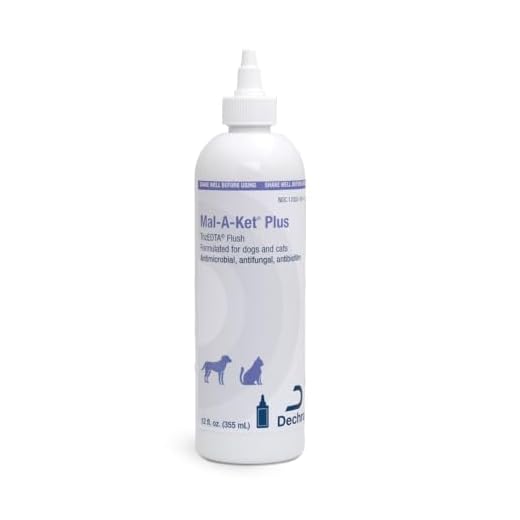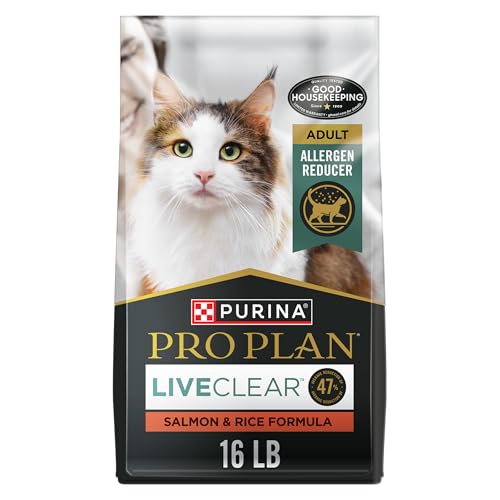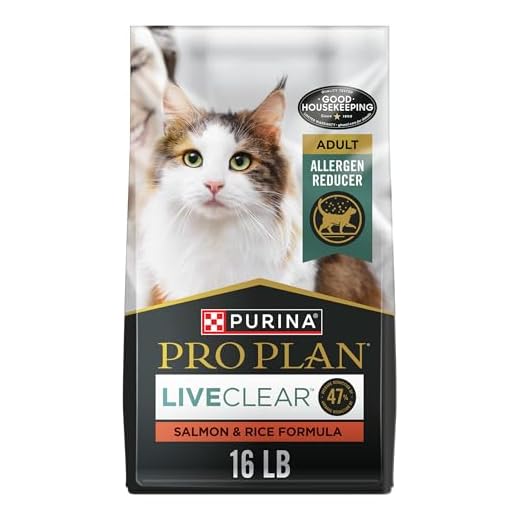



If you notice persistent scratching or discomfort around my head region, it’s crucial to check for common irritants. Allergies often play a significant role, whether from food, pollen, or even dust mites. Consider changing my diet to a hypoallergenic option if food is suspected.
Another frequent cause for discomfort involves parasites. Fleas, ticks, and mites can lead to an unbearable sensation. Regular treatments and preventive measures are essential to keep those pesky invaders at bay. A thorough inspection of my fur can reveal telltale signs, such as flea dirt or skin irritation.
Infections are also a possibility, whether fungal or bacterial. If you observe redness, swelling, or unusual discharge, consulting a veterinarian is wise. They can provide the right treatment to alleviate any underlying issues and restore my comfort.
Finally, environmental factors should not be overlooked. Dry air or harsh cleaning products can irritate sensitive skin. Adjusting the humidity levels in our living space or switching to pet-safe cleaning supplies can make a significant difference in my well-being.
Understanding My Discomfort
I often find myself scratching my outer flap and shaking my head. This sensation can stem from several factors. One common reason is the presence of parasites like fleas or mites. A quick check for any tiny critters or debris might reveal the culprit.
An allergic reaction can also trigger this annoyance. Certain foods, pollen, or even dust can lead to irritation in this sensitive area. If a new treat has been introduced recently, it might be worth reconsidering its inclusion in my diet.
Another possibility is an infection. Bacterial or fungal infections can cause inflammation and discomfort. A visit to the vet for a thorough examination can help identify any underlying issues that require treatment.
Lastly, if I’ve been excessively grooming, it may lead to skin irritation. Monitoring my grooming habits can help prevent further aggravation.
Addressing these concerns promptly ensures my comfort and overall well-being. Regular check-ups with my human are crucial for maintaining my health.
Common Causes of Itchy Ears in Cats
Fleas are a primary culprit for discomfort in the outer regions. These tiny pests can irritate the skin, leading to scratching and inflammation. A thorough check for fleas and their droppings can help identify this issue.
Ear Mites
These microscopic creatures can cause significant irritation. If you notice dark debris resembling coffee grounds, it may indicate a mite infestation. A vet visit is essential for proper diagnosis and treatment.
Allergies
Environmental factors, such as pollen or dust, can trigger allergic reactions. Symptoms may include redness and constant scratching. Identifying and avoiding allergens can alleviate symptoms. Consulting with a veterinarian for appropriate allergy management is advisable.
Infections, whether bacterial or fungal, can also lead to discomfort. Signs may include a foul odor or discharge. Prompt veterinary care is necessary to address these infections effectively.
How to Treat and Prevent Ear Itchiness in Cats
For relief, start with a vet visit. They can recommend appropriate treatments based on the underlying cause. If allergies are suspected, antihistamines or topical treatments may be suggested. In cases of ear infections, medication and cleaning solutions will be vital. Always follow the vet’s instructions carefully.
Regular Maintenance
Incorporate routine ear cleaning into your care regimen. Use a vet-approved solution and a soft cloth or cotton ball to gently clean the outer ear. Avoid inserting anything deep into the ear canal. This helps prevent dirt buildup and minimizes the risk of infections.
Monitor Diet and Environment
Keep an eye on your food. Certain ingredients can trigger allergic reactions. If you’re curious about new additions, check out whether can cats eat string beans. Additionally, maintain a clean living space to reduce allergens. Regular vacuuming and using air purifiers can help keep irritants at bay.
If you notice persistent scratching or discomfort around my head region, it’s crucial to check for common irritants. Allergies often play a significant role, whether from food, pollen, or even dust mites. Consider changing my diet to a hypoallergenic option if food is suspected.
Another frequent cause for discomfort involves parasites. Fleas, ticks, and mites can lead to an unbearable sensation. Regular treatments and preventive measures are essential to keep those pesky invaders at bay. A thorough inspection of my fur can reveal telltale signs, such as flea dirt or skin irritation.
Infections are also a possibility, whether fungal or bacterial. If you observe redness, swelling, or unusual discharge, consulting a veterinarian is wise. They can provide the right treatment to alleviate any underlying issues and restore my comfort.
Finally, environmental factors should not be overlooked. Dry air or harsh cleaning products can irritate sensitive skin. Adjusting the humidity levels in our living space or switching to pet-safe cleaning supplies can make a significant difference in my well-being.
Understanding My Discomfort
I often find myself scratching my outer flap and shaking my head. This sensation can stem from several factors. One common reason is the presence of parasites like fleas or mites. A quick check for any tiny critters or debris might reveal the culprit.
An allergic reaction can also trigger this annoyance. Certain foods, pollen, or even dust can lead to irritation in this sensitive area. If a new treat has been introduced recently, it might be worth reconsidering its inclusion in my diet.
Another possibility is an infection. Bacterial or fungal infections can cause inflammation and discomfort. A visit to the vet for a thorough examination can help identify any underlying issues that require treatment.
Lastly, if I’ve been excessively grooming, it may lead to skin irritation. Monitoring my grooming habits can help prevent further aggravation.
Addressing these concerns promptly ensures my comfort and overall well-being. Regular check-ups with my human are crucial for maintaining my health.
Common Causes of Itchy Ears in Cats
Fleas are a primary culprit for discomfort in the outer regions. These tiny pests can irritate the skin, leading to scratching and inflammation. A thorough check for fleas and their droppings can help identify this issue.
Ear Mites
These microscopic creatures can cause significant irritation. If you notice dark debris resembling coffee grounds, it may indicate a mite infestation. A vet visit is essential for proper diagnosis and treatment.
Allergies
Environmental factors, such as pollen or dust, can trigger allergic reactions. Symptoms may include redness and constant scratching. Identifying and avoiding allergens can alleviate symptoms. Consulting with a veterinarian for appropriate allergy management is advisable.
Infections, whether bacterial or fungal, can also lead to discomfort. Signs may include a foul odor or discharge. Prompt veterinary care is necessary to address these infections effectively.
How to Treat and Prevent Ear Itchiness in Cats
For relief, start with a vet visit. They can recommend appropriate treatments based on the underlying cause. If allergies are suspected, antihistamines or topical treatments may be suggested. In cases of ear infections, medication and cleaning solutions will be vital. Always follow the vet’s instructions carefully.
Regular Maintenance
Incorporate routine ear cleaning into your care regimen. Use a vet-approved solution and a soft cloth or cotton ball to gently clean the outer ear. Avoid inserting anything deep into the ear canal. This helps prevent dirt buildup and minimizes the risk of infections.
Monitor Diet and Environment
Keep an eye on your food. Certain ingredients can trigger allergic reactions. If you’re curious about new additions, check out whether can cats eat string beans. Additionally, maintain a clean living space to reduce allergens. Regular vacuuming and using air purifiers can help keep irritants at bay.
If you notice persistent scratching or discomfort around my head region, it’s crucial to check for common irritants. Allergies often play a significant role, whether from food, pollen, or even dust mites. Consider changing my diet to a hypoallergenic option if food is suspected.
Another frequent cause for discomfort involves parasites. Fleas, ticks, and mites can lead to an unbearable sensation. Regular treatments and preventive measures are essential to keep those pesky invaders at bay. A thorough inspection of my fur can reveal telltale signs, such as flea dirt or skin irritation.
Infections are also a possibility, whether fungal or bacterial. If you observe redness, swelling, or unusual discharge, consulting a veterinarian is wise. They can provide the right treatment to alleviate any underlying issues and restore my comfort.
Finally, environmental factors should not be overlooked. Dry air or harsh cleaning products can irritate sensitive skin. Adjusting the humidity levels in our living space or switching to pet-safe cleaning supplies can make a significant difference in my well-being.
Understanding My Discomfort
I often find myself scratching my outer flap and shaking my head. This sensation can stem from several factors. One common reason is the presence of parasites like fleas or mites. A quick check for any tiny critters or debris might reveal the culprit.
An allergic reaction can also trigger this annoyance. Certain foods, pollen, or even dust can lead to irritation in this sensitive area. If a new treat has been introduced recently, it might be worth reconsidering its inclusion in my diet.
Another possibility is an infection. Bacterial or fungal infections can cause inflammation and discomfort. A visit to the vet for a thorough examination can help identify any underlying issues that require treatment.
Lastly, if I’ve been excessively grooming, it may lead to skin irritation. Monitoring my grooming habits can help prevent further aggravation.
Addressing these concerns promptly ensures my comfort and overall well-being. Regular check-ups with my human are crucial for maintaining my health.
Common Causes of Itchy Ears in Cats
Fleas are a primary culprit for discomfort in the outer regions. These tiny pests can irritate the skin, leading to scratching and inflammation. A thorough check for fleas and their droppings can help identify this issue.
Ear Mites
These microscopic creatures can cause significant irritation. If you notice dark debris resembling coffee grounds, it may indicate a mite infestation. A vet visit is essential for proper diagnosis and treatment.
Allergies
Environmental factors, such as pollen or dust, can trigger allergic reactions. Symptoms may include redness and constant scratching. Identifying and avoiding allergens can alleviate symptoms. Consulting with a veterinarian for appropriate allergy management is advisable.
Infections, whether bacterial or fungal, can also lead to discomfort. Signs may include a foul odor or discharge. Prompt veterinary care is necessary to address these infections effectively.
How to Treat and Prevent Ear Itchiness in Cats
For relief, start with a vet visit. They can recommend appropriate treatments based on the underlying cause. If allergies are suspected, antihistamines or topical treatments may be suggested. In cases of ear infections, medication and cleaning solutions will be vital. Always follow the vet’s instructions carefully.
Regular Maintenance
Incorporate routine ear cleaning into your care regimen. Use a vet-approved solution and a soft cloth or cotton ball to gently clean the outer ear. Avoid inserting anything deep into the ear canal. This helps prevent dirt buildup and minimizes the risk of infections.
Monitor Diet and Environment
Keep an eye on your food. Certain ingredients can trigger allergic reactions. If you’re curious about new additions, check out whether can cats eat string beans. Additionally, maintain a clean living space to reduce allergens. Regular vacuuming and using air purifiers can help keep irritants at bay.









